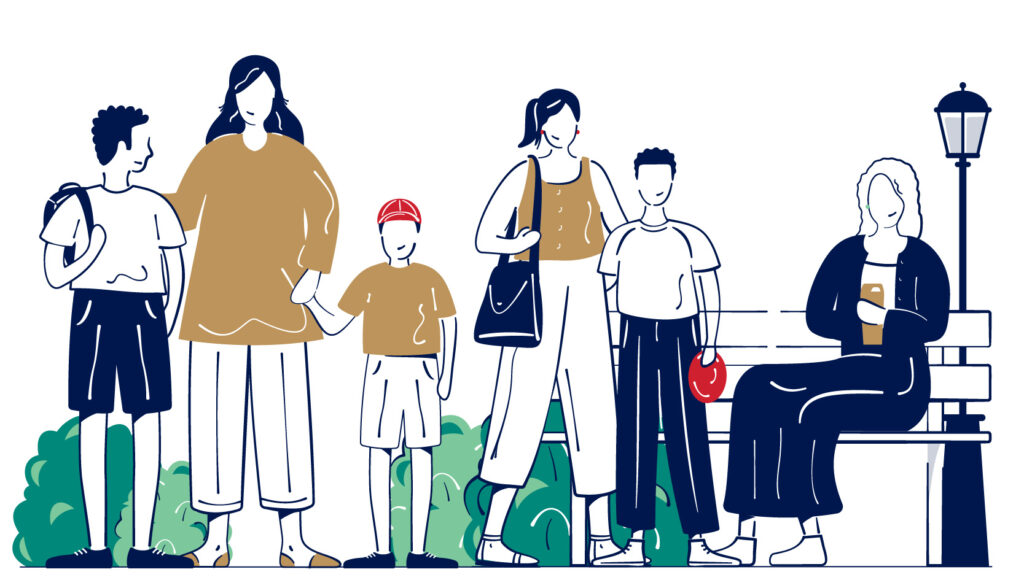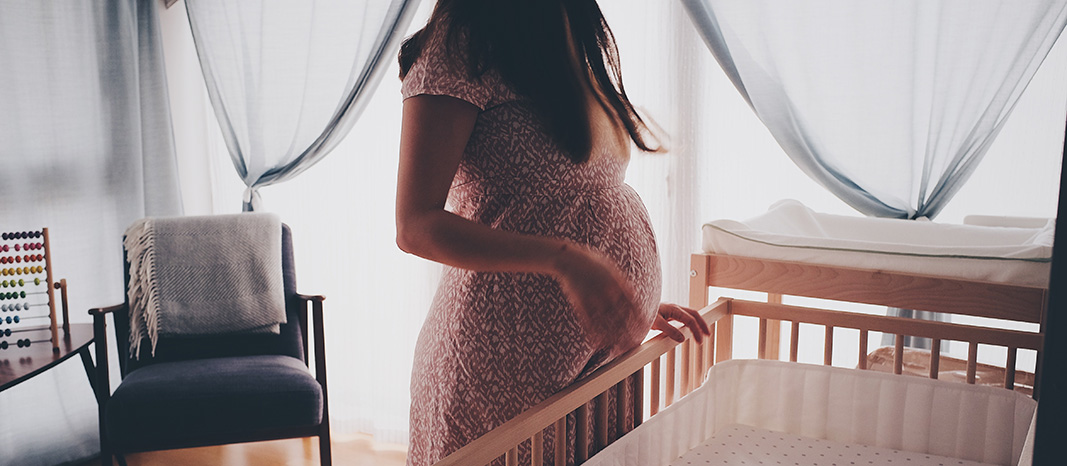You’re almost there—baby and mother are about to meet! Your baby’s movements are more obvious in your third trimester. These exciting sensations are often accompanied by increasing discomfort and other signs and symptoms, including constipation, swelling, and backaches. Here are some ways to reduce the common discomforts of the third trimester.
Constipation and hemorrhoids during pregnancy
While pregnancy constipation is more common in the third trimester due to pressure on your bowel, it can happen at any point. To help with constipation and hemorrhoids, you should:
- Drink six to eight cups of liquid each day. Choose water, juices, and milk.
- Eat plenty of fiber-rich foods, such as raw fruits and vegetables, whole grains, high-fiber cereal, popcorn, and beans.
- Walk or do light exercise each day as you are able.
- Avoid using laxatives or enemas.
- Avoid straining or pushing when having a bowel movement.
- Drink less fluid two hours before bedtime.
- Use the bathroom often.
- Do Kegel exercises. Kegels are performed by squeezing the muscles around the vagina, urethra, and rectum, and holding them for three to five seconds. Slowly increase holding to 10 seconds. Repeat 10 times. Do Kegels at least three times each day.
- Avoid caffeine in coffee, tea, sodas, sport drinks, and energy drinks.
Leg cramps during pregnancy
Leg cramps are most common in late pregnancy, and they often occur at night. The cause of this cramping isn’t entirely clear, but it’s suspected to be linked to low calcium levels or high phosphorus levels. Regardless of the cause, here’s how you can relieve your cramps:
- Drink plenty of water.
- Stretch your legs before bed.
- If you have a leg cramp, work to straighten your leg. Alternate flexing and relaxing your foot.
- Stretch your calf muscles during the day.
- Do low to moderate exercise as directed by your provider.
- Add calcium to your diet, such as dairy, leafy greens, and calcium-fortified juice.
- Avoid crossing your legs or sitting in a position that reduces blood flow.
What to do when you can’t sleep
Sleeping trouble during pregnancy is most common in the third trimester, and it often stems from heartburn, congestion, hormone changes, and the need to make multiple bathroom trips throughout the night. To help combat insomnia:
- Turn off your smart phone, TV, and tablet one or more hours before bedtime. The light from these devices can make it harder to fall asleep.
- Exercise earlier in the day. Late day exercise can wake up your body.
- Use relaxation, meditation, and other strategies to get ready for sleep.
- Use pillows to cradle your body.
- Avoid caffeine in coffee, tea, sodas, sport drinks, and energy drinks, especially after 2:00 p.m.
Braxton Hicks contractions
Braxton Hicks contractions (or false labor) are characterized by mild, irregular contractions or tightness in your abdomen. This is more likely to occur in the afternoon or evening after physical activity. These contractions also tend to occur more often and become stronger as you approach your due date.
Contact your healthcare provider if the contractions become regular and steadily increase in strength.
Swelling in hands and feet
Pregnancy causes your body to hold more water than usual, and this can result in swollen hands, fingers, and feet. Here’s how to reduce swelling:
- Wear supportive shoes.
- Prop your feet up when sitting or lying down.
- Add protein to your diet, such as eggs, beans, tofu, meat, and yogurt.
- Avoid standing for long periods of time.
Varicose veins
Varicose veins (or spider veins) look swollen, raised, or bulging. In addition to their distinctive appearances, they can also cause pain or discomfort. To help avoid varicose veins:
- Keep feet slightly raised when sitting and avoid standing for long periods of time.
- Avoid tight-fitting clothing.
- Avoid crossing your legs.
You’re almost there!
Danger signs of pregnancy in third trimester
Closing in on delivery, the line between common issues and an immediate trip to the hospital becomes blurred. Call your healthcare provider if you have any of the following symptoms:
- Abdominal pain or cramping
- Fever
- Vaginal bleeding
- Sudden and severe swelling or puffiness of the hands, face, and eyes
- Vision disturbances like blurring or double vision that persists for more than a few minutes
- A severe headache or a headache that lasts for more than two to three hours
- A sudden release of fluid from your vagina
- You notice that your baby has stopped moving or is moving much less than normal
- Concerns about any of your symptoms
Contact us
Have any questions or concerns about third trimester symptoms? Call CHM’s Maternity Support Team at 1-800-791-6225 for medical and program related support.

What mother in the bible would you be?
Take our quiz to find out which mother in the Bible you relate to most.







